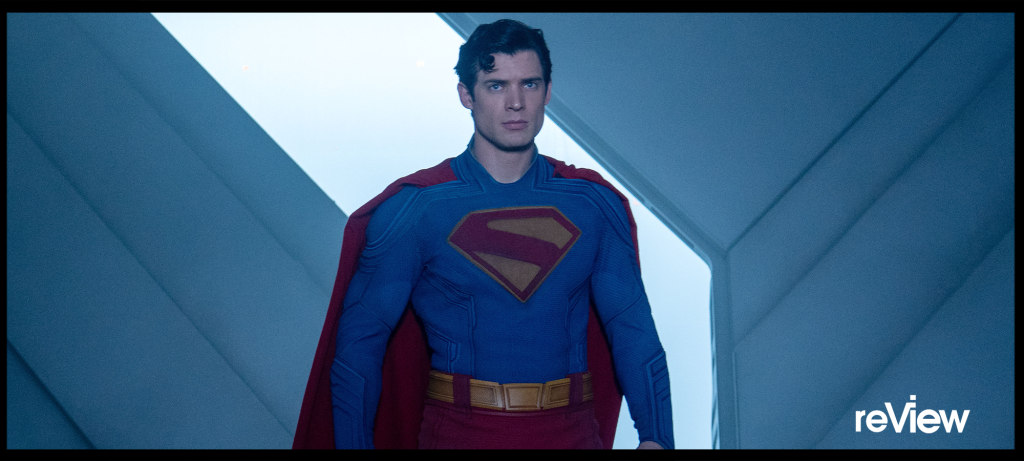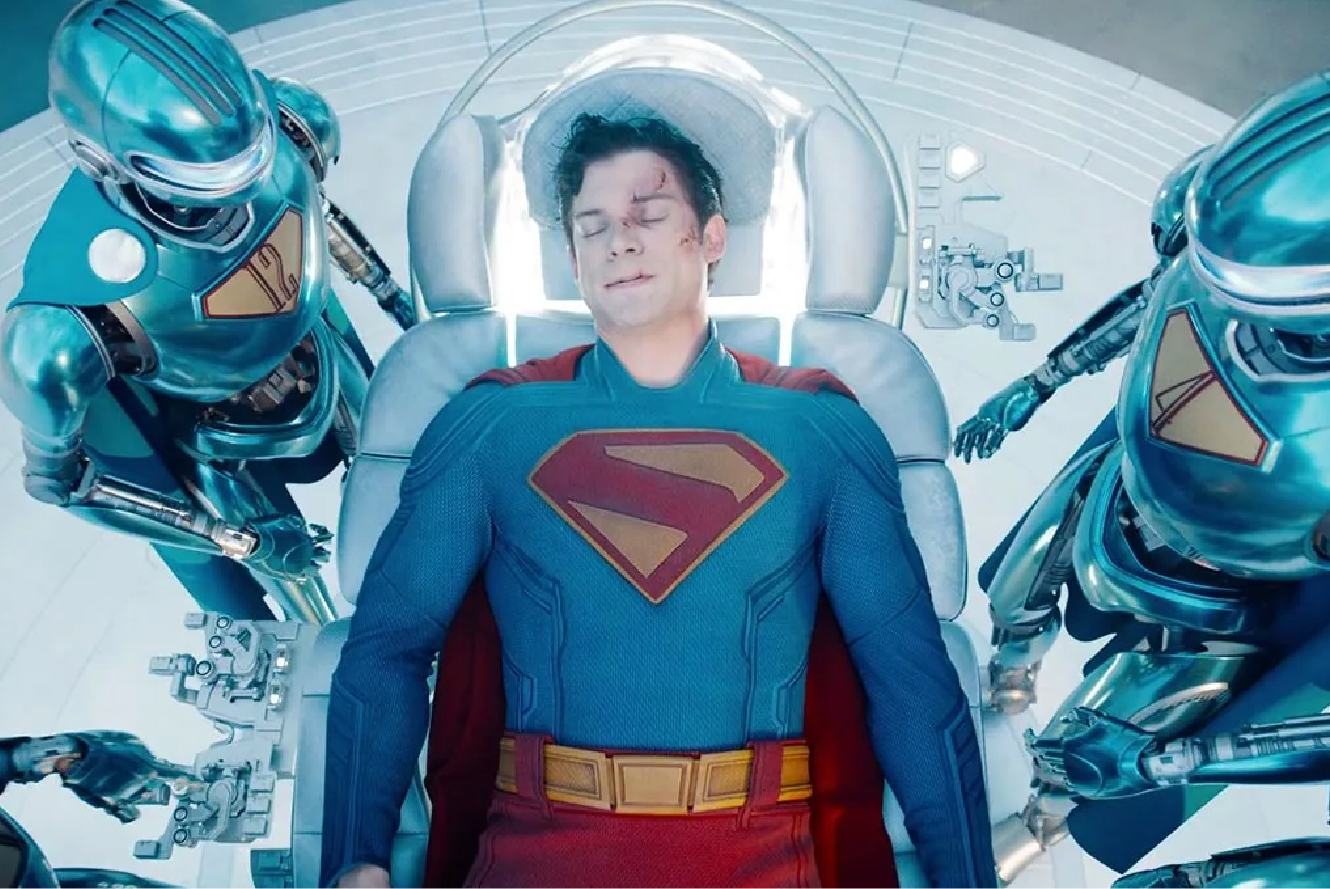
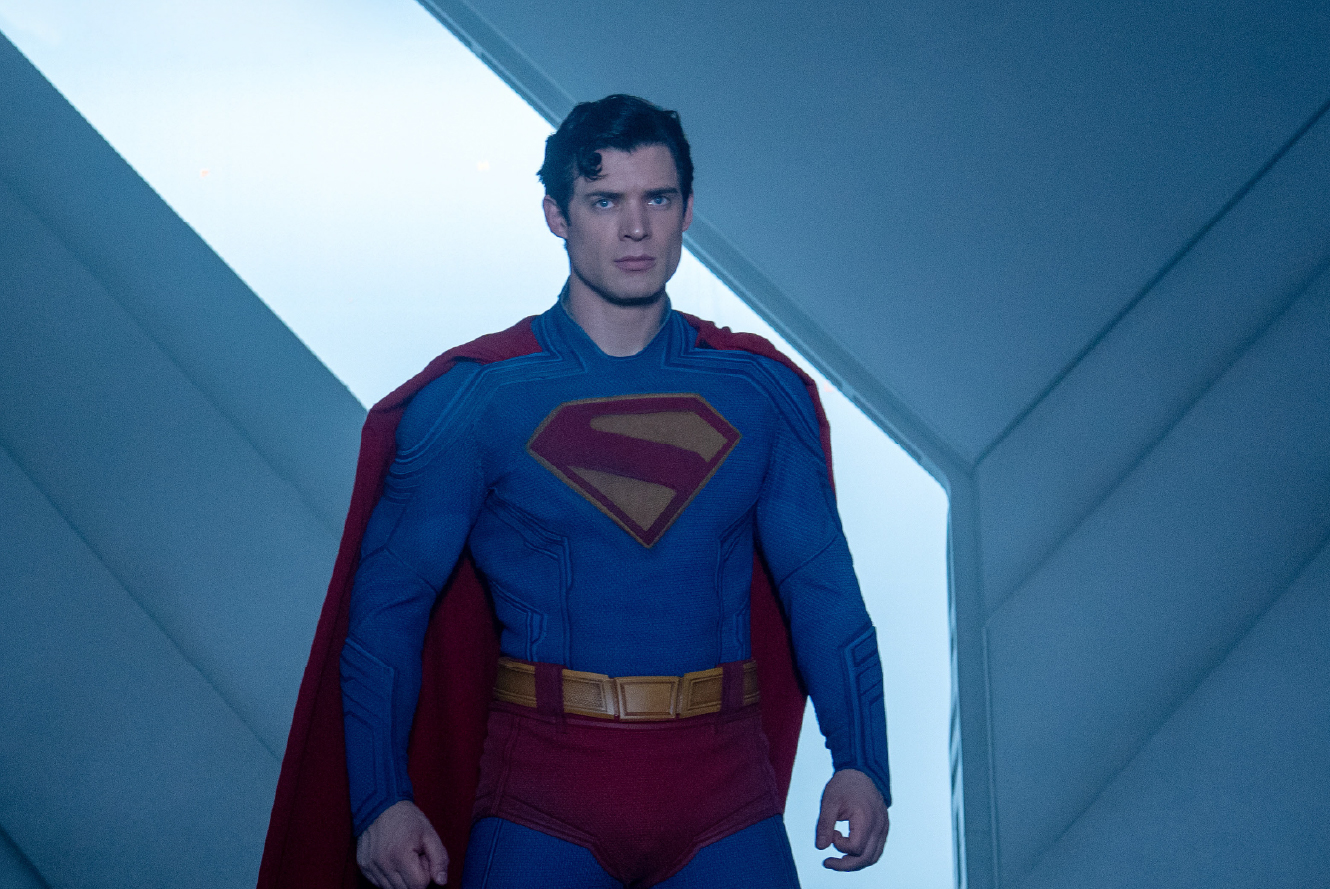
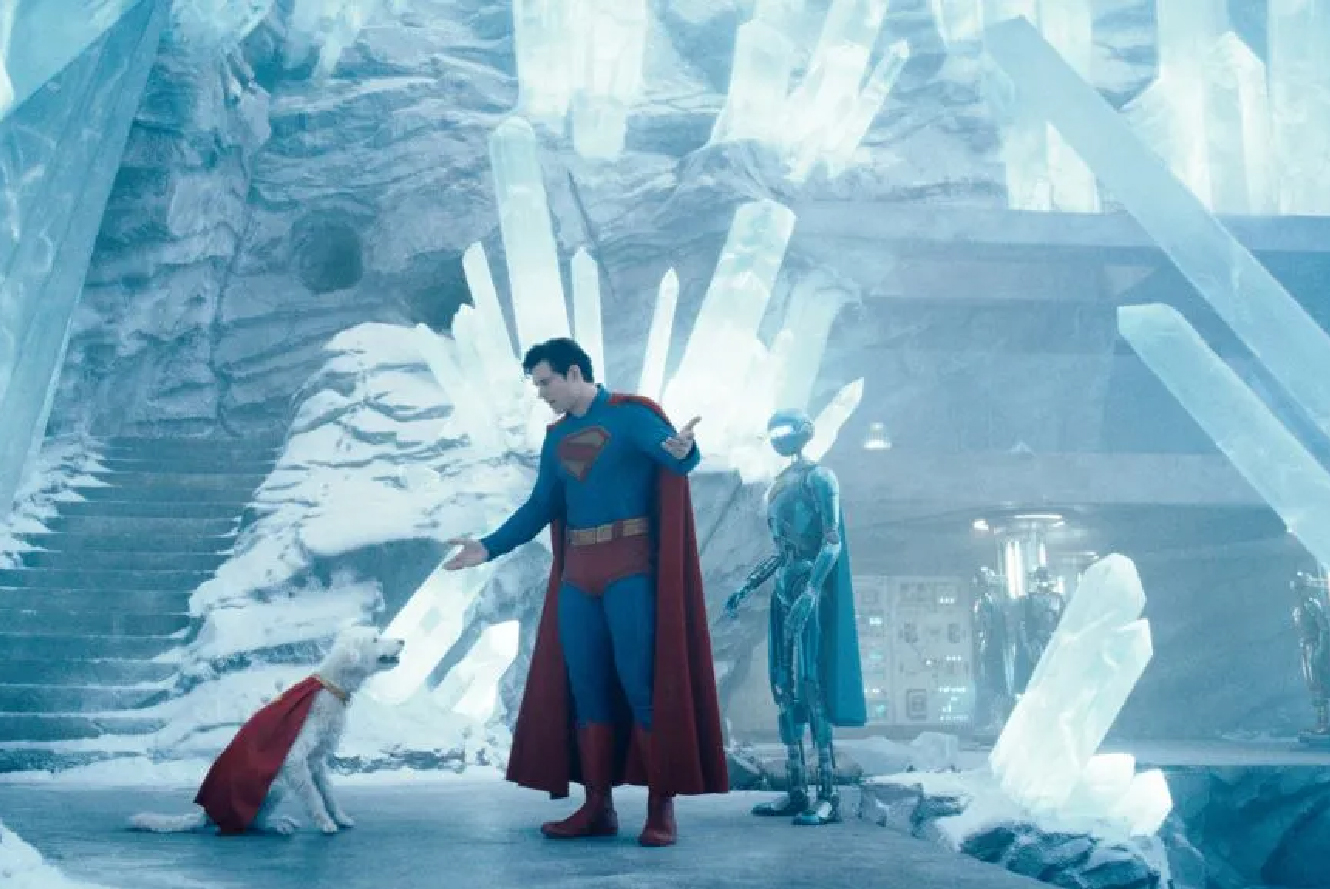
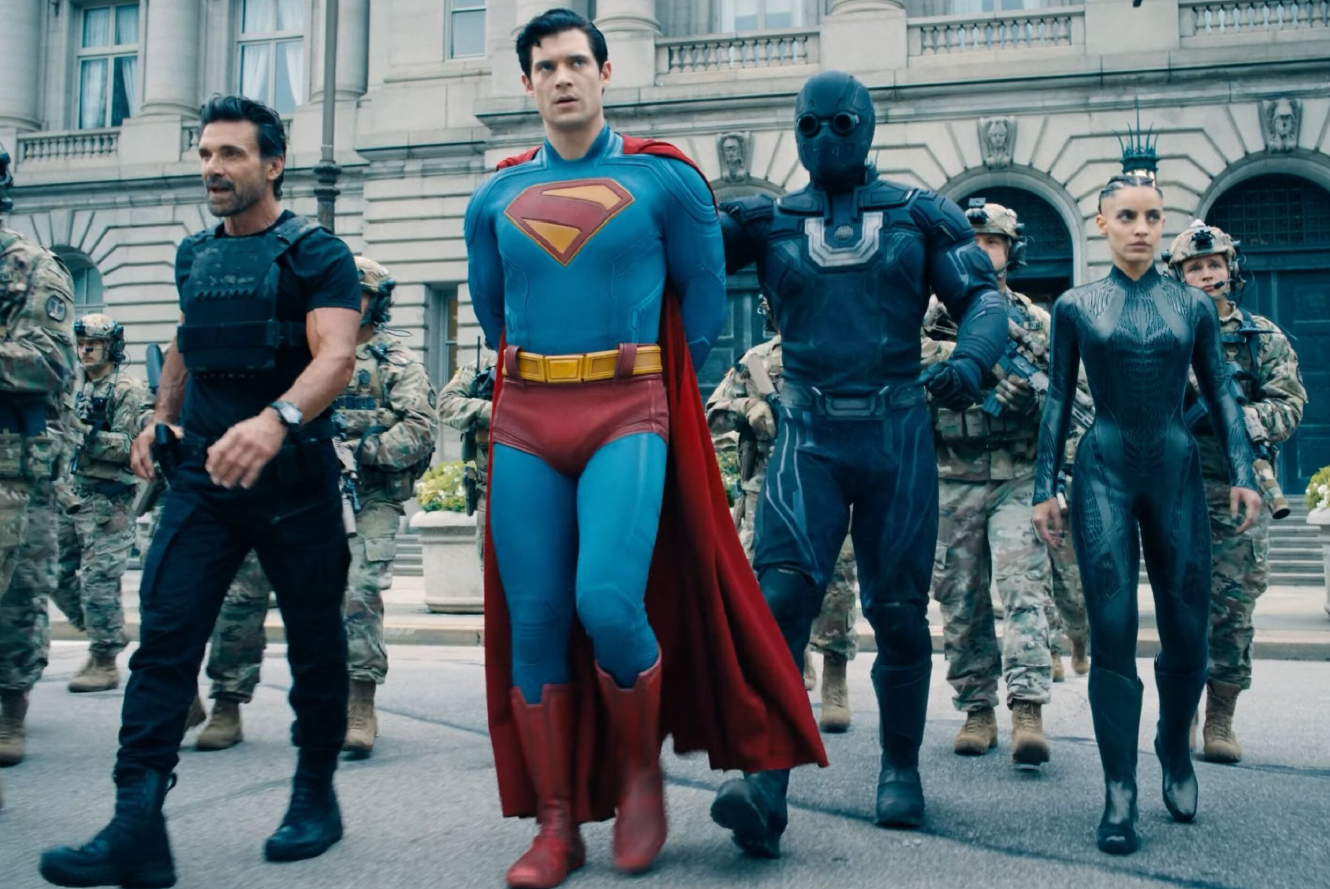
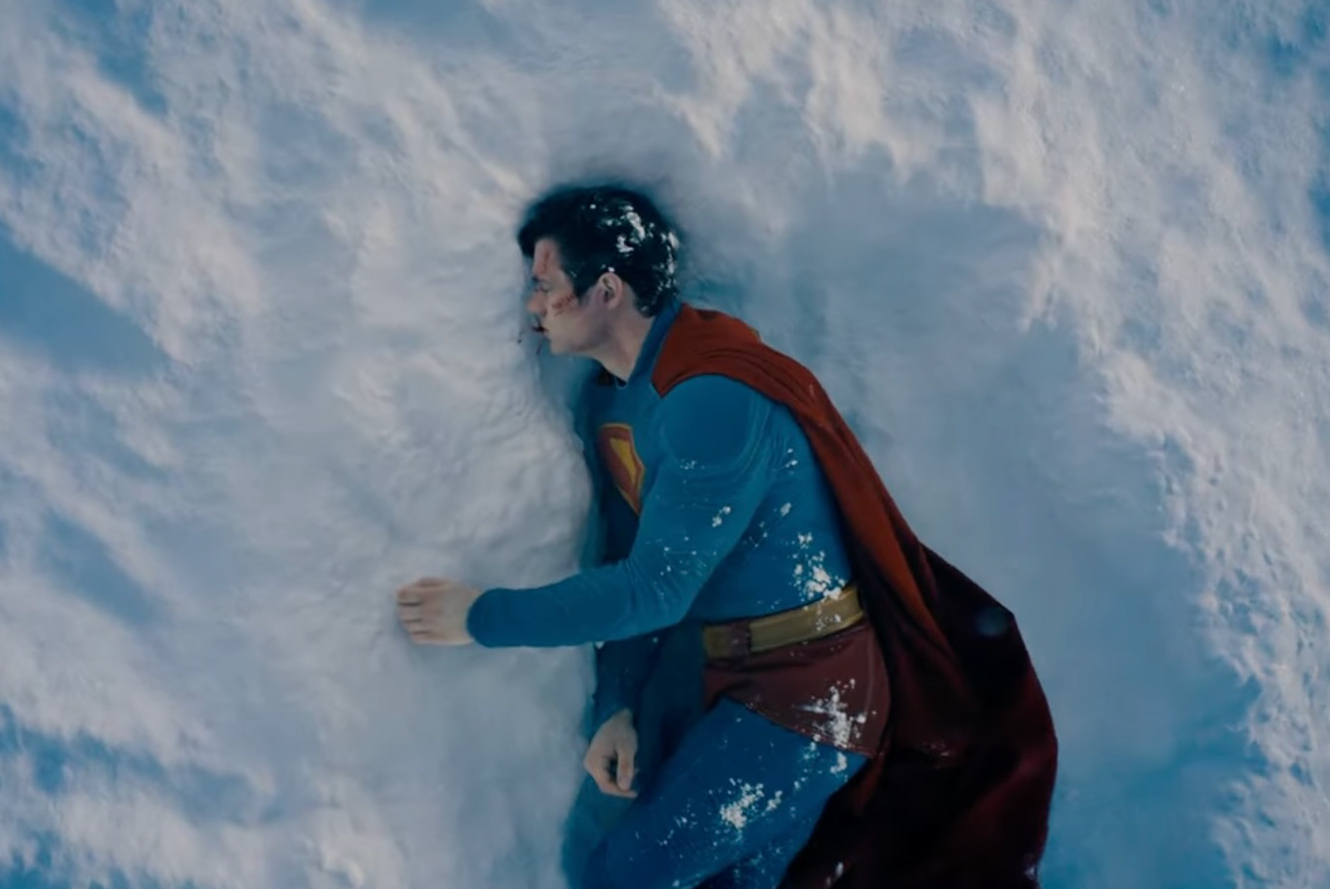
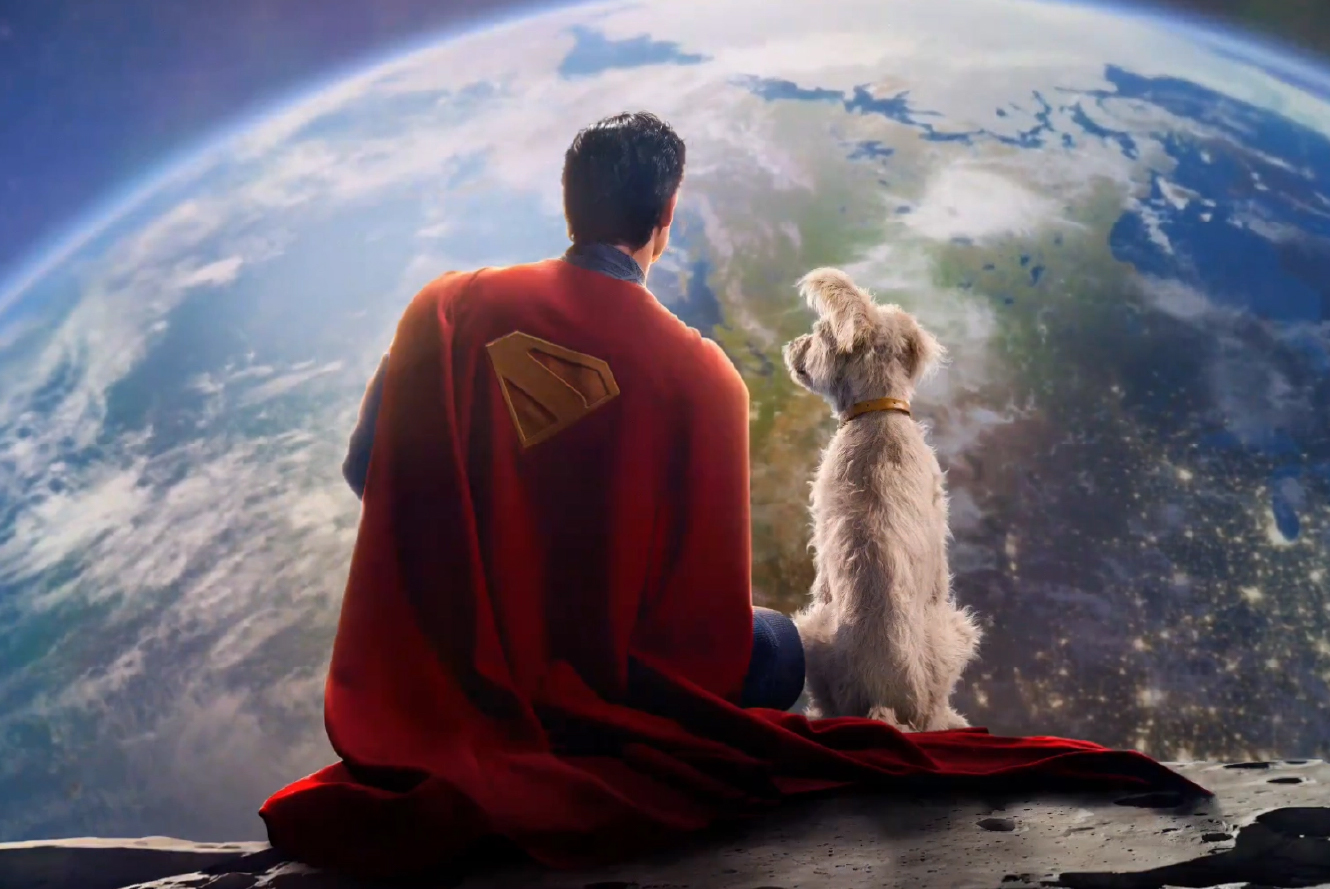
RATING
Director(s): James Gunn
Country: United States
Author: James Gunn, Jerry Siegel, Joe Shuster
Actor(s): David Corenswet, Alan Tudyk, Grace Chan
Written by Tom Augustine
As we were waiting for Superman to start, I asked my friend to name his favourite superhero films. It was a short list: the only real contenders were Spider-Man 2, The Dark Knight and Ang Lee’s misunderstood Hulk. I’d agree with that list, perhaps throwing in The Incredibles or Unbreakable — with Spider-Man 2 sitting comfortably at the top, surely never to be unseated — but I found it interesting that no superhero film from the 2010s, ostensibly the golden era of superheroes, made the cut. There are a number of obvious contenders from that era: Black Panther, Logan, the various Avengers movies, but the years haven’t been especially kind to them, largely due to the way the films’ characters and legacies have been treated by the Marvel machine itself in the time following their initial success. The late-era superhero films that I find stick in the mind are the oddities, the intriguing misfires that didn’t connect with a large audience: Birds of Prey, The Suicide Squad, perhaps Zack Snyder’s Justice League if you’re freaky. The only other ones are James Gunn’s Guardians of the Galaxy films, handily the best of the MCU to date, and the only ones with a key quality that the others lack — rewatchability. The most significant flaw of the current glut of superhero movies is their disposable nature: their expiry date hits somewhere between the first and second post-credit scenes, ready to be forgotten entirely. As James Gray famously put it: ‘“I’m gonna make them an offer they can’t refuse,” you know instantly what that movie is. You cannot quote me a single line from Aquaman. You can’t do it.’ For all their flaws, the Guardians movies were sufficiently personal, weird and adventurous as to warrant return viewings. The best compliment I can give Gunn’s take on Superman, the film his entire career has been building toward, is that I’d happily sit down and watch it again.
Gunn’s fascinating career has evolved alongside superhero films, with which his work will always be intertwined: from the schlock days of Troma, to his subversive send-up Super, and inevitably into the Marvel machine, he’s managed what only a few directors have managed to achieve — making the modern multiversal structure work for him, not the other way around. His films of the modern era have cannily wielded lesser-known comic book characters — the Guardians, specifically — to give him more leeway to work in his pet themes and, occasionally, politics. There’s a case to be made that the climactic and final sequences of Guardians of the Galaxy 2 are the best the series has ever produced, for their open-hearted, earnest emotion. It’s that earnestness, which has always skated gleefully along the line of hamminess, which surely secured Gunn as the new helmsman of the DC ship, and of Superman particularly, one of the most notoriously difficult superheroes to adapt for the screen. It’s the fiftieth anniversary of Richard Donner’s original take on Superman, one of the very first superhero films, and still arguably the definitive take on the character. The iterations that followed — from the sequels to that very film, to Bryan Singer’s conflicted Superman Returns, to Zack Snyder’s tortured, self-serious take on the character, all variously misinterpreted or miscalculated what was required to land this particular plane. That Gunn’s Superman is arguably the best of these since the original is not a difficult peak to summit, and this new film is sure to be divisive — those who deny the fact that these are comic book characters written for children will undoubtedly revolt — but it’s that very earnestness that makes Superman a winning adaptation, leaning into the element that invites people to reject Kal-El himself in their considerations of favourite heroes.
DC head honcho James Gunn’s opening salvo to his new era of superhero blockbusters aims to right the ship after years in the Snyder-led wilderness. It’s a bold, messy swing, one that embraces the inlaid simplicity and earnestness of the first superhero.
Because Superman is corny. The ideas and politics that surround his iconography are retrograde in the extreme. There’s no way around it — and if that is not something that you’re interested in, that’s fine. But Superman belongs to a time (allegedly) less complicated than our own, one in which resolute moral certitude, laced with none-too-subtle American patriotism, was an easy pill to swallow. Each director since the original has had to contend with this fact, and Gunn deals with it best by allowing, and arguing, that the superhuman goodness within Superman is not alien, but human. His aw-shucks Supes, played by intriguing new lead David Corenswet (doing a very fine job), is a man out of time, his stubborn belief in protecting the innocent and the vulnerable landing him in complicated political situations orchestrated by shadowy government and business tycoons, particularly Lex Luthor (a magnetic Nicholas Hoult). Unlike other Superman reboots, Gunn’s film doesn’t offer an origin story, instead launching in media res, three years since a grown Superman introduced himself to the world, and invited the fury of Luthor, who loathes his godlike abilities for their potential to overshadow his own intellectual ones. Superman has intervened on behalf of the people of Jarhanpur, a fictional nation being menaced by the larger, United States-supported Boravia, who aim to invade and install a new regime. His interruption of the planned overtaking of the small nation incurs an international incident, with Superman at the centre of debate. Luthor, a ludicrously cunning and insidiously powerful figure that readily invites comparisons to the various billionaires who rule the world we live in, attempts to weaponise the public against Superman, using various means of social, political and technological means to unseat him as a paragon of truth and justice. This includes the use of two ‘metahumans’, The Engineer (María Gabriela de Faría), a nanobot-enhanced human-robot hybrid, and ‘The Hammer of Boravia’, a mysterious masked supervillain who is initially seen handing Superman his first defeat in combat.
This is just some of the plot of Gunn’s exceedingly overstuffed movie, which also layers in Clark Kent’s romance with reporter Lois Lane, and the many factions of the Daily Planet newspaper; and the presence of other metahuman heroes sponsored by big corporations like the members of the ‘Justice Gang’, winningly played by Nathan Fillion (as the Green Lantern), Isabella Merced (as Hawkgirl) and particularly Edi Gathegi as Mister Terrific, whose hilariously deadpan, grumpy disposition steals entire scenes of Superman. Then there’s also the question of Clark’s adopted parents, the Kents, and his Kryptonian parents, whose mysterious, half-finished message to Clark is the source of Superman’s moral certitude. There’s also a dog named Krypto, inspired by Gunn’s own dog, a very cute flying wrecking ball of a super-mutt whose presence is an indicator of the film’s overall sensibility. Much like Gunn’s Guardians movie, the result of so many different stimuli results in a sprawling, messy execution, one with serious pacing issues and a general lack of internal flow. It also has a peculiar visual sensibility — a warped meld of overburdened CGI and overlit primary colour maximalism clearly drawn from comic book splash pages, only partially successful. What doesn’t waver, though, is Gunn’s management of tone, which is firm in its investment in the comics’ Rockwellian, misty-eyed open-heartedness. It’s a frequently funny, goofy film, but one that doesn’t lose itself in the insufferable meta quippiness of so many modern superhero vehicles. The obvious parallel is, in fact, Spider-Man 2, whose heights Gunn’s film naturally never reaches, but wisely places itself in the orbit of. The resulting film moves differently to the way we’ve become accustomed to such stories being told — not all of it works, and frequently there are whole sections that fall flat on their face — but that feeling has a hypnotic quality to it, and I was never bored.
Part of this is the very strong ensemble that Gunn has assembled, a canny roster of new faces and emerging megastars. Corenswet steps ably into the boots and cape — his Superman is both impermeable and childlike, his wide-eyed belief in the ultimate good of people a weakness that evolves into an asset in each new struggle he finds himself in. As Lane, Rachel Brosnahan is a capable foil, while the rest of the Daily Planet staff, particularly Skylar Gisondo as Jimmy Olson, provide welcome doses of humanity to the extraterrestrial proceedings. Gathegi, oozing detached cool, alongside rising star Merced and cult favourite Fillion, are likeably spiky as world-weary allies, while Hoult’s villainous Luthor is compelling as an entirely uncomplicated source of evil, maintaining the essential magnetism required to fuel the conflict. Like its hero, there’s a warmth that could easily be perceived as naivety radiating off Superman — in the film’s absolute belief in the redemptive quality of humanity, and, perhaps, in the audience’s capacity to accept a film as boldly cornball as the one we have before us. The audience I expect it to truly resonate with, importantly, are kids: there are plenty of meaningful undercurrents to Superman, particularly in how it handles the Jarhanpur/Boravia conflict, which was probably initially conceived as a response to the Russia-Ukraine war but more frequently and rewardingly resembles Israel-Palestine — but the topline emotions, gags and character arcs are simply, effectively rendered to land with young audiences, as they were in Raimi’s Spider-flicks of old. Superman is, ultimately, old-fashioned, which may be both the thing that causes its downfall before our modern, hyper-commercial, hyper-cynical audience, and the reason to return to it again and again.
Superman is in cinemas now.

